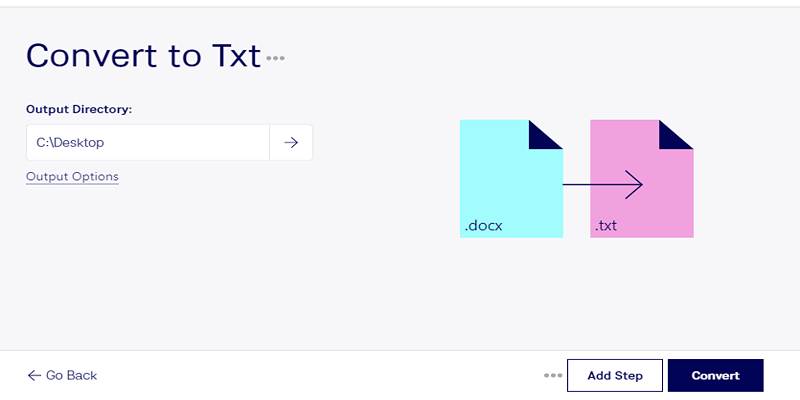Which Are The 8 Best Database-Powered App Builders for Seamless Development
App development free from code is simpler than it has ever been. Database-driven app builders let you construct apps fast. These platforms let you design, automate, and manage apps with structured data. Effective data storage, retrieval, and processing depend on a solid database. Excellent app developers guarantee scalability and seamless interaction. They also include automated tools and easy-to-use interfaces.
Startups, companies, and developers gain from these applications. For either web or mobile apps, they streamline development. You do not require sophisticated coding knowledge. You can instead concentrate on utility and customizing. The best database-powered app builders for flawless development are explored in this article. We will contrast usability, price, and features. Let's hunt for the ideal app for your project!

8 Best Database-Powered App Builders
These are the excellent apps that make the seamless development without coding:
Bubble:
One often used no-code app builder is Bubble. It lets consumers create visually appealing apps without knowing programming. The platform features a built-in database meant for dynamic data management. It offers UI element designer drag-and-drop capability. Users may include APIs and automate processes. Startups, small companies, and developers would find the platform perfect. Bubble enables instantaneous data updating. Its responsive designs allow great customization. Included are security aspects such as privacy choices and authentication. Pricing begins with an all-free plan. Paid subscriptions have advanced tools and additional storage. For MVPs, SaaS apps, and e-commerce sites especially, it's fantastic. Bubble streamlines app development with built-in database capability.
Adalo:
Adalo builds beginner-friendly apps. It allows consumers to create mobile and web apps without knowing any programming language. The platform links easily with components thanks to a built-in database. Drag-and-drop technologies let you create aesthetically pleasing applications. The user interface responds and is fluid. Adalo permits user authentication and database connections. Users of iOS, Android, and the web can submit their apps. It facilitates interactions with outside services such as Zapier. That improves efficiency and automation. Startups, independent contractors, and companies all would find it ideal. Adalo is an excellent alternative if you wish for an easy-to-use database-powered app builder. It allows all people to engage in mobile and web development.
Glide:
Glide is a great tool for building apps driven by spreadsheets. It keeps a database in Google Sheets or Airtable. That makes updating data in real-time simple and data management straightforward overall. The drag-and-drop editor permits quick app construction. One may create mobile-friendly apps without knowing programming. For internal tools, customer portals, and business apps, glide performs wonderfully. It offers choices for branding and tailored templates. By means of encryption and user authentication, the platform guarantees data security. Apps could be published on mobile shops or distributed via links. Pricing begins with a free copy of the open edition. Paid programs include sophisticated tools, including team cooperation. For those needing a spreadsheet-powered app builder, it is ideal.
Softr:
Softr turns Airtable into an absolutely working application. For non-coders, this is among the better database-powered app builders. Users of the platform can design online apps, portals, and websites. Softr ties straight to Airtable. Users can, therefore, dynamically control and show data. It offers UI elements and bespoke layouts. The platform presents payment integrations, user identification, and membership choices. SaaS apps, marketplaces, and internal tools all benefit from it. Softr's free plan contains a few elements. Paid plans give more choices for branding and flexibility. Businesses and startups looking for scalable solutions should find it ideal. Softr makes database integration flawless with its no-code methodology. For professionally looking web apps, it's fantastic.

OutSystems:
One capable low-code platform is OutSystems. It enables companies to create sophisticated apps quickly. The software boasts a sophisticated database designed for structured data handling. Visual programming lets developers create web and mobile apps. It interacts both with outside APIs and SQL databases.
Additionally available on the platform is AI-driven automation for quick implementation. One's main emphasis is security. It offers compliance, data encryption, and authentication features. OutSystems helps create quite scalable apps. Pricing is determined by corporate necessity. For little projects, there is a free edition. Full customizing and assistance help businesses. OutSystems is a first choice for firms seeking a scalable database-powered app builder. Its design is growth and efficiency first.
Backendless:
Strong backend-as-a-service (BaaS) platform Backendless offers cloud storage, real-time data updates, and database management. The builder of visual apps offers low-code and no-code development. Users can create applications by only dragging and dropping. Backendless additionally provides user authentication and API connections. Applications running in real-time would find the platform perfect. Chat apps, game systems, and corporate tools all find use for it. Backendless has a free tier with minimum capability. Advanced database management and push notifications are included in paid programs. Backendless is a great choice for people wanting a real-time database-powered app builder. It drives flawless app performance and backend processes.
Appgyver:
The low-code app builder Appgyver offers a simple means of creating web and mobile apps. The platform comprises a built-in data storage and retrieval database. With a drag-and-drop editor, users can graphically create apps. It provides expanded functionality through API integrations. Custom apps would find the very versatile platform perfect. Appgyver lets people run programs across several platforms. It addresses responsive design elements, logic automation, and authentication. The greatest thing is that Appgyver presents a free, completely working plan. Businesses have choices in scalability and premium support. Appgyver is worth looking at if you wish for a feature-rich, low-code app builder. It strikes a mix between simplicity and customizing.
Xano:
Xano is a backend-building tool. It offers a no-code API builder and scalable database. That lets users design potent applications without creating backend programming. Features of the platform comprise automation tools, role-based access, and authentication. It supports integrations via APIs and outside databases. The visual workflow builder Xano uses streamlines difficult backend tasks. Users control real-time changes and dynamic content. Pricing begins with an open edition free version. Higher storage and processing capabilities come from premium plans. Startups and companies looking for scalable answers would find it perfect. Xano is an excellent tool for individuals looking for a no-code backend and database-powered app builder. Strong backend support helps to simplify app creation.
Conclusion:
Your needs will determine the right database-powered app builder for you. Great no-code solutions are Bubble, Adalo, and Glide. Advanced capabilities abound from OutSystems and Backendless. Scalability and flexibility abound from Softr, Appgyver, and Xano. Every platform has particular advantages. Think about database capabilities, customizing, and price. These builders streamline both internal tool development and corporate app development. Start using these tools and easily create your app. Here is where low-code and no-code development will find its future!
Related Articles

Best Screen Sharing Software for Remote Teams in 2025: A Comprehensive Guide

How to Move the Dock on Your Mac to a Second Monitor: A Step-by-Step Guide

Which Are The Top AI Art Generators to Unleash Your Creativity in 2025

Which Are The 8 Best Database-Powered App Builders for Seamless Development

How to Convert HEIC to JPEG Online Without Extra Apps or Programs

What is a Cache? Understanding Its Role and Benefits of Clearing It

How to Add Leads to LeadConnector from a Webhook: A Step-by-Step Guide

Connecting Google Sheets to WordPress Seamlessly

5 Simple Ways to Convert 3GP to MP4 Effortlessly

Choosing the Right App Builder for Your Needs

Top 10 WordPress Plugins for Collecting User Feedback

 knacksnews
knacksnews